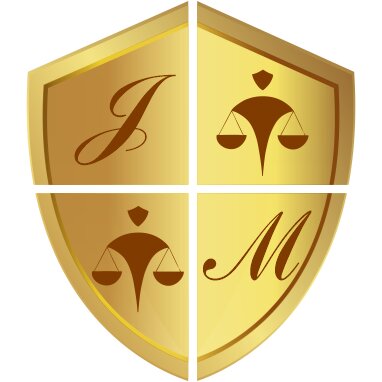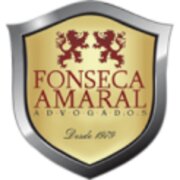Best Native People Lawyers in Lagoa Santa
Share your needs with us, get contacted by law firms.
Free. Takes 2 min.
List of the best lawyers in Lagoa Santa, Brazil
About Native People Law in Lagoa Santa, Brazil
Lagoa Santa is a municipality in the state of Minas Gerais, Brazil, with significant historical and cultural connections to Indigenous Peoples. While Lagoa Santa is not officially recognized as Indigenous land, it is located near regions of archaeological importance and within the larger framework of Brazilian laws on Indigenous rights. Native People in this context refer to the Indigenous communities with ancestral ties to Brazil and the protections they are afforded under national and local law.
Brazilian law acknowledges the rights and protections of Indigenous Peoples through the Federal Constitution, specific federal statutes, and local regulations. These laws relate to land rights, cultural preservation, access to resources, and social inclusion. In Lagoa Santa, discussions around Indigenous legal matters may touch upon land usage, heritage protection, and access to state services.
Why You May Need a Lawyer
Legal assistance is often necessary for Native People or those working with Indigenous communities in Lagoa Santa due to complexities in navigating Indigenous rights and regulations. Here are common situations where legal help is necessary:
- Disputes related to ancestral land claims or demarcation processes.
- Protection of archaeological sites with Indigenous heritage importance.
- Ensuring access to health, education, and welfare services as per statutory guarantees.
- Cases of discrimination or violations of Indigenous rights.
- Negotiating agreements involving government and private companies (such as infrastructure projects or resource extraction).
- Understanding inheritance, family, and community law specific to Indigenous traditions.
- Assisting with cultural preservation, intellectual property, and recognition of traditional knowledge.
Local Laws Overview
The legal framework governing Native People in Lagoa Santa is primarily guided by federal legislation, but Minas Gerais state laws and municipal guidelines may also play a role. Key aspects include:
- The Federal Constitution of 1988 recognizes Indigenous Peoples' rights to their ancestral lands, cultural identity, and social organization.
- Law No. 6.001 of 1973, the Indian Statute, regulates the responsibilities of the government towards Indigenous Peoples.
- Federal body FUNAI (National Indian Foundation) is tasked with protecting and promoting Indigenous rights, including land claims and cultural preservation.
- Municipal laws may support the protection of archaeological sites, such as the Lagoa Santa karst cave region, which holds evidence of Indigenous occupation.
- Protection against discrimination, and the right to participate in social and cultural life on an equal basis with other Brazilians, are guaranteed.
- Participation in consultations for local development, as mandated by Convention 169 of the International Labour Organization, to which Brazil is a signatory.
Frequently Asked Questions
Who are considered Native People or Indigenous Peoples in Lagoa Santa?
Indigenous Peoples are recognized by self-identification and community affiliation, with ancestral and cultural ties to the territory of Brazil. In Lagoa Santa, they may be members of Indigenous communities from Minas Gerais or have roots in other regions.
What rights do Indigenous Peoples have under Brazilian law?
They are entitled to recognition of their social organization, languages, customs, beliefs, traditional knowledge, and original rights to the lands they traditionally occupy. They also have guaranteed access to health, education, and legal protection.
Is there Indigenous land in Lagoa Santa?
There are no demarcated Indigenous lands directly within Lagoa Santa’s municipal boundaries, but the area is significant for its archaeological and historical links to Indigenous heritage. Discussion around land may still involve local Indigenous or descendant communities.
Can someone claim Indigenous ancestry to access certain benefits?
Legal recognition of Indigenous status involves self-identification and acceptance by an Indigenous community, often subject to verification by authorities such as FUNAI.
What laws protect Indigenous archaeological sites in Lagoa Santa?
Brazilian federal law protects archaeological sites and artifacts. The Institute of National Historical and Artistic Heritage (IPHAN) oversees the protection and preservation of such sites in Lagoa Santa.
How is discrimination against Indigenous Peoples addressed?
Brazilian law prohibits racial discrimination, including against Indigenous Peoples. There are both criminal and civil remedies available for those affected by discrimination or infringement of rights.
How can an Indigenous community start a land demarcation process?
The process begins with a request to FUNAI, which is responsible for studies and recommendations regarding Indigenous land demarcation. It requires documentation, studies, and community involvement.
What role does FUNAI play in Lagoa Santa?
FUNAI provides legal, social, and cultural support to Indigenous communities, including managing land rights, mediating disputes, and ensuring policy implementation at the local level.
Are there local programs or initiatives to support Indigenous culture?
Municipal and state governments, sometimes in partnership with federal agencies, support educational, cultural, and heritage activities related to Indigenous culture, including protection of archaeological sites.
When should an Indigenous person or community seek legal assistance?
Whenever there is a risk to their rights, such as land disputes, cultural heritage issues, discrimination, or access to public services, consulting a lawyer with expertise in Indigenous law is recommended.
Additional Resources
If you need further information or assistance regarding Native People’s legal matters in Lagoa Santa, the following resources may be helpful:
- National Indian Foundation (FUNAI) - Government body for Indigenous rights and land issues.
- Institute of National Historical and Artistic Heritage (IPHAN) - For protection of archaeological and cultural heritage.
- Public Defender’s Office (Defensoria Pública) - Provides free legal assistance, including on Indigenous rights matters.
- Federal Public Ministry (Ministério Público Federal) - Oversees the enforcement of collective rights, including those of Indigenous communities.
- Local Indigenous Culture Associations - Community groups involved in advocacy and cultural preservation.
- Universities and research centers in Minas Gerais with Indigenous studies or partnerships.
Next Steps
If you believe you or your community require legal assistance involving Native People’s rights or issues in Lagoa Santa, consider the following steps:
- Gather relevant documentation, such as personal identification, any correspondence with authorities, and evidence related to your case.
- Contact local Indigenous organizations or associations for initial guidance and support.
- Reach out to FUNAI or the Public Defender’s Office for information about your rights and potential legal pathways.
- Consult with a qualified lawyer who specializes in Indigenous law to evaluate your situation and represent your interests.
- Participate in community meetings or forums where Indigenous rights and local concerns are discussed.
- Stay informed about local policies and any legislative changes that may affect Indigenous Peoples in Lagoa Santa.
Seeking advice from professionals familiar with Indigenous law will help ensure your rights are protected and your voice is heard in all legal matters.
Lawzana helps you find the best lawyers and law firms in Lagoa Santa through a curated and pre-screened list of qualified legal professionals. Our platform offers rankings and detailed profiles of attorneys and law firms, allowing you to compare based on practice areas, including Native People, experience, and client feedback.
Each profile includes a description of the firm's areas of practice, client reviews, team members and partners, year of establishment, spoken languages, office locations, contact information, social media presence, and any published articles or resources. Most firms on our platform speak English and are experienced in both local and international legal matters.
Get a quote from top-rated law firms in Lagoa Santa, Brazil — quickly, securely, and without unnecessary hassle.
Disclaimer:
The information provided on this page is for general informational purposes only and does not constitute legal advice. While we strive to ensure the accuracy and relevance of the content, legal information may change over time, and interpretations of the law can vary. You should always consult with a qualified legal professional for advice specific to your situation.
We disclaim all liability for actions taken or not taken based on the content of this page. If you believe any information is incorrect or outdated, please contact us, and we will review and update it where appropriate.









